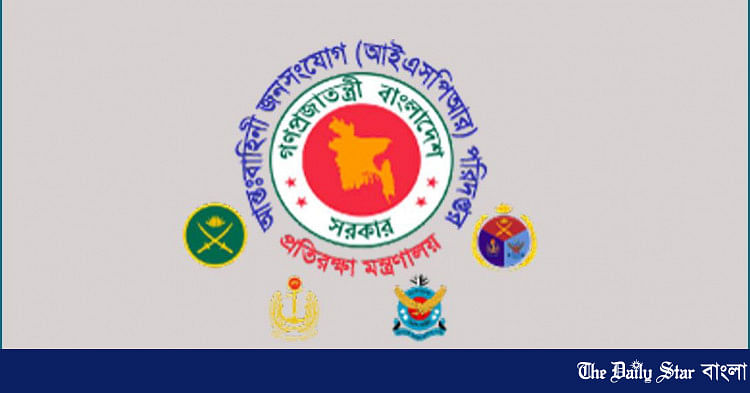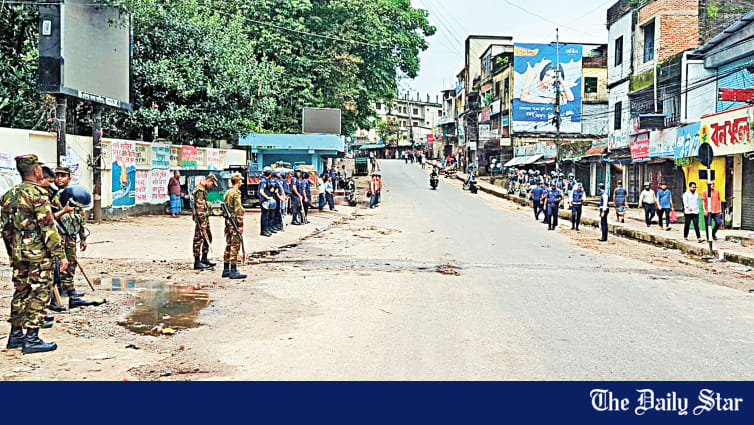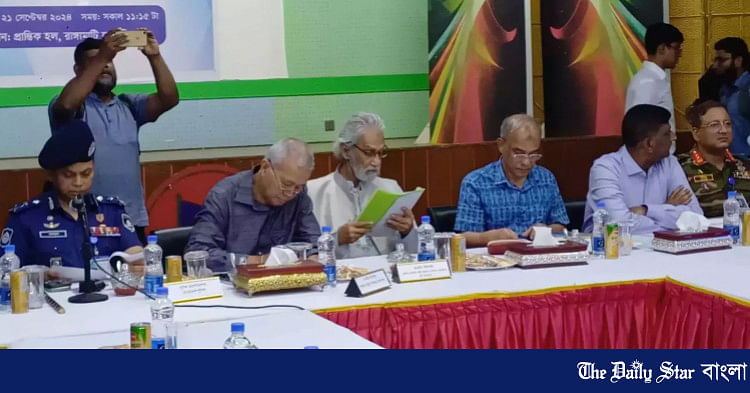Fear reigns in CHT
Staff Correspondent 22 September, 2024, 00:28
National minority people of plain land holds a protest rally, demanding justice for the killing and arson attacks on the hill people in Rangamati and Khagrachari, at the Anti-Violence Raju Memorial Sculpture on the University of Dhaka on Saturday. | Md Saurav
Fear reigned supreme in the Chittagong Hill Tracts where life came to an abrupt halt on Saturday following two previous days of sectarian violence in Khagrachhari and Rangamati that left four ethnic minority men killed.
Section 144 imposed in parts of the violence-hit districts prevented the situation from worsening, but failed to restore the atmosphere required to bring hundreds of displaced ethnic minority families back to their homes.
The 72-hour road and waterways blockade enforced by a platform led by ethnic minority students left the restive three hilly districts, including Bandarban, completely detached from the rest of the country, further escalating the tension.
Condemnations poured in from socio-political organisations over the situation and the controversial role of the security forces, particularly the military, in escalating the tension instead of mollifying it.
‘The trust that has been broken cannot be so easily amended,’ said Rahel Chakma, a resident of Dighinala in Khagrachhari, the epicentre of the sectarian violence.
Dighinala is the largest upazila in Khagrachari where the sectarian violence flared up on September 19 leading to displacement of most of the largely Buddhist ethnic minority people comprising more than half of the upazila’s population.
Many of the ethnic minority families moved deep into the forests, taking shelter at their relatives in remote hilly villages where they reached after a perilous journey along with their children and elderly family members.
Many of the ethnic minority families left barefoot, leaving all their belongings back in their homes and businesses that were burned down in an arson attack launched by Bengalis on Thursday.
Bangladesh Buddhist Federation estimated that at least 100 shops and houses, mostly owned by their community members, were completely burned down in Dighinala.
Some of the shops also served as homes to ethnic minority families, said locals.
Buddhists temples also came under attack.
‘The return of ethnic minority families who lived in Bengali-dominated areas to their homes is really uncertain,’ said Triratan Chakma, who also sheltered a family in his home in Dighinala.
Dighinala upazila nirbahi officer Md Mamunur Rashid, however, said that he was not aware about any houses being set on fire.
But he admitted that some people did leave their homes out of fear and that effort was on to bring them back.
In Rangamati, ethnic minority people alleged that scores awaited rescue trapped in places where they had sought shelter after clashes broke out between them and Bengalis on Friday morning.
Some of the trapped people were injured.
‘Some of the injured came under another round of attack after we rescued them and took them to the Rangamati hospital,’ said Atul Chakma, a resident of Rangamati town, who was also injured in the attack.
Nipon Tripura, president, Chattogram Hill Tracts Hill Students Council, said that they rescued 200 people trapped in different places in Rangamati town, including in shops, since Friday afternoon.
The situation in Rangamati turned violent on Friday morning all of a sudden when a demonstration consisting of hundreds of ethnic minority people ended up confronting Bengalis at Banarupa.
About 40 houses and establishments belonging to ethnic minorities were set on fire in Rangamati, prompting scores of families to flee for their lives, some of them so scared that they jumped straight into the Karnaphuli River and swam across it.
There were reports about the violence separating children from their mothers who stayed miles away since Friday.
Imposition of section 144 and the 72-hour blockade stood in the ways of the families reuniting.
Local people said that life came to a complete stop in the CHT on Saturday as the movement of all kinds of vehicles to and from the hilly districts remained completely suspended due to the blockade.
The Bus and Launch Owners Association in Rangamati announced an indefinite strike on Saturday, protesting at the destruction of vehicles during the Friday protest.
The identity of the victim who was beaten to death by Bengalis in Rangamati on Friday was confirmed as Anik Chakma.
‘The situation is under control and no clashes took place after Friday,’ said Refat Asma, upazila nirbahi officer, Rangamati sadar upazila, adding that Section 144 was still in effect until Saturday afternoon.
Police and ethnic minority rights activists saw the sectarian violence to have launched over ethnic minorities as they freshly mobilised demanding restoration of democratic practices in the hills, ending of military rule and illegal settlement and full implementation of the CHT peace accord.
The violence was eventually stoked by the discovery of the body of a Bengali, Mamun, on September 18. Newspapers reported that Mamun, who stood accused in several criminal cases, was lynched by a mob.
The September 19 attack on ethnic minorities in Khagrachhari’s Dighinala was launched from a protest procession brought over Mamun’s death by several thousand Bengalis. The sectarian violence spilled over to Rangamati the next day.
The Chittagong Hill Tracts Commission, an international independent body, in a statement issued on Saturday said that Bengalis blaming ethnic minorities for the Bengali’s murder was unjust and not proven.
The CHT Comission raised question about the military’s role particularly citing two incidents —one of which is the opening of fire by the military on ethnic minority people at the Swanirbhar, Naranghiya and Upazlipara areas of Khagrachhari sadar.
The other incident, the commission said that is the march of a Bengali mob armed with clubs and sticks behind three military pickups around noon in the Fishery Ghat area of Rangamati. The mob attacked ethnic minorities and their property.
The Inter-Service Public Relations, however, claimed that the violence in Khagrachari was caused by the main faction of the United People’s Democratic Front.
The UPDF denied the allegation saying it was false.
A government team led by the home adviser visited some of the affected areas on Saturday. The adviser promised to deal with the situation with iron hand, a fair probe into the violence and restoration of peace.
The Communist Party of Bangladesh, Left Democratic Alliance, Bangladesh Udichi Shilpigoshthi, National Citizens Committee, Network for Democratic Bangladesh (Europe), Naripokkho, and a group of 45 eminent citizens condemned the sectarian violence and demanded a fair probe into it.
Ethnic minorities in Dhaka held a press conference in front of the Madhur Canteen at Dhaka University, protesting at the incidents in Rangamati and Khagrachari with a 7-point demand, New Age correspondent at the university reported.
They held the event under the banner Bikkhubdho Jumma Chhatra Janata in protest against attacks, arson, looting, vandalism on religious establishments by settler Bengalis with military support in Khagrachari and Rangamati, and shootings by the army that resulted in the killing of four minority people.
The demands included ensuring safety and security of hill people in the three hill districts, especially those affected by communal violence in Khagrachari Sadar, Dighinala, and Rangamati, conducting of an investigation into these recent attacks under the supervision of the United Nations, and ensuring exemplary punishment of those responsible.






















 www.newagebd.net
www.newagebd.net






 www.newagebd.net
www.newagebd.net




































